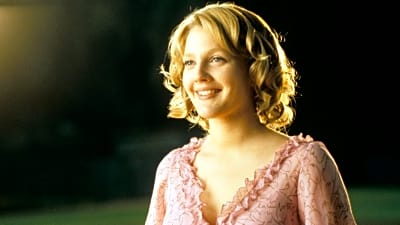
"Pulp Fiction" at 25: The triumph of the movie brats
Two hit men clad in cheap black suits adorned with skinny black ties have arrived at a Southern California apartment building to off an unspecified group of people for an unspecified offense. They go to the trunk of their car to retrieve their weapons and, after lamenting the lack of shotguns for what could be a messy multiperson hit, they approach the building.
In a typical action film, the next few minutes would be fraught with tension as the gunmen stealthily roll up on the unit where their targets are ensconced. In Quentin Tarantino’s "Pulp Fiction," they carry on a casual conversation about the potential impropriety of giving another man’s wife a foot massage.
Finally, they arrive at the apartment. Are they going to bust down the door and barge in guns blazing, or will they approach the situation with a little more savoir faire?
They do neither.
Jules: “What time you got?” Vincent: “7:22 a.m.” Jules: “Ain’t quite time yet. C’mon, let’s hang back.”
And so after all that buildup, these professional hit men stroll a few doors down the hall and continue their argument about the potential impropriety of giving another man’s wife a foot massage.
While Tarantino’s first film, "Reservoir Dogs," had become a cult hit after its limited 1992 theatrical release, his sophomore effort went wide on Oct. 14, 1994, riding a tidal wave of hype that started building five months earlier when it won the Cannes Film Festival’s prestigious Palme d’Or. The majority of critics were raving about the film’s narrative ingenuity and John Travolta’s sensational comeback performance; some were dismayed by the movie’s wanton violence, which only succeeded in giving it a blood-soaked sheen of notoriousness. “Pulp Fiction” was a game changer. People had to see what all the fuss was about.
While much was made about the film’s nonlinear structure and Tarantino’s pop-culture riffing, the former had been employed in numerous classics like Resnais’ “Hiroshima mon amour” and Fellini’s "8½," while topical references to Gen X media were a ‘90s cult movie staple thanks to Michael Lehmann’s “Heathers” and Ben Stiller’s “Reality Bites." What really knocked moviegoers sideways, aside from the violence, were moments like the apartment conversation that continue for a minute or two longer than any conventional filmmaker would ever allow.
Tarantino possessed a master playwright’s ear for dialogue and an avid moviegoer’s sense for how much amusingly extraneous banter they could handle. As a video store clerk and devoted cinephile, a true movie brat, he’d devoured 10 times more movies than 99 percent of the public; ergo, he knew what people hadn’t seen, and he knew what would blow their minds.
The American indie movement was already well underway by the time Tarantino showed up, but he roared into the picture with a crowd-pleasing bravado that folks like Steven Soderbergh, Richard Linklater and Allison Anders lacked. He vigorously embraced the promotion side of the business, selling his movies and himself with a William Castle-like zeal. But most importantly, he broadened audiences’ notions of what a movie could be.
A graphically violent movie about L.A. lowlifes could, at a seemingly excessive two-and-a-half hours, be the funniest and most thrilling film of the year. From this point forward, indie movies and foreign films began to find their way into multiplexes outside of major media markets, while studios began to take chances on gifted filmmakers who actually enjoyed sitting through Ingmar Bergman films. It would all eventually get corrupted by Harvey Weinstein, who built his Miramax empire on the backs of bold new talent like Tarantino, but this mainstreaming of idiosyncratic voices proved to be a vital moment in American cinema.
And it all started with Samuel L. Jackson and John Travolta bickering in an apartment hallway about the potential impropriety of giving another man’s wife a foot massage.
More must-reads:
- Movie monsters that failed to terrify audiences
- The best and worst "Pulp Fiction" knockoffs
- 20 one-hit wonders from the 1990s that have endured
Breaking News
Trending in Entertainment
Customize Your Newsletter
 +
+
Get the latest news and rumors, customized to your favorite sports and teams. Emailed daily. Always free!






